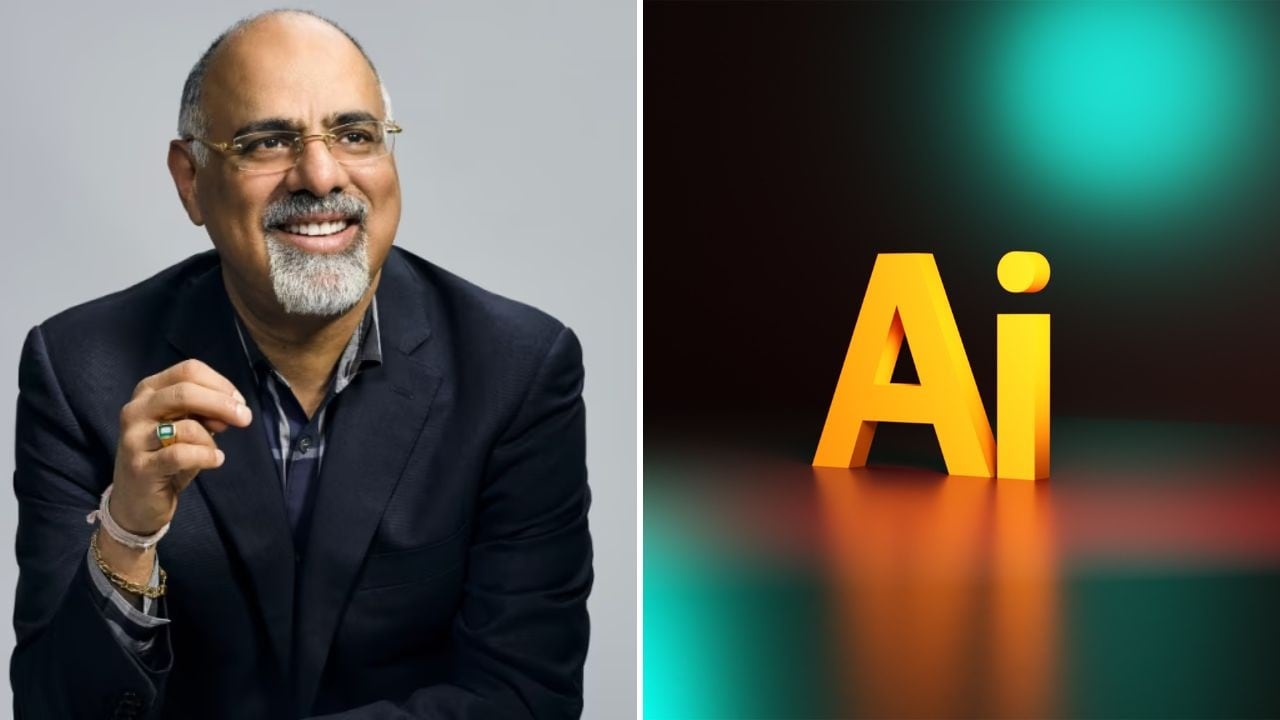Note from the author: The viral success of ChatGPT over the past few weeks has been surprising and exciting. Perhaps for the first time, people are getting a chance to see the radical impact artificial intelligence can have on their daily lives.
A few years ago, I released my book, ‘Quantum Marketing’. In it, I shared that marketing as an industry is entering a new era that I call The Fifth Paradigm, driven by emerging technologies. There was only one technology I thought was important enough to warrant its own chapter: AI.
I recently asked ChatGPT to condense and summarize that chapter. You can find its output — with minimal human edits — below. I hope you find it helpful!
AI: The Ultimate Propellant of Quantum Marketing
The rise of artificial intelligence (AI) is disrupting the marketing industry and heralding a new “Fifth Paradigm” of marketing.
Previous paradigms saw the emergence of data as a driver in marketing, from the internet explosion in the Third Paradigm to the democratization of data analytics in the Fourth. AI will take this to an unprecedented level, producing radical results.
AI in the Fifth Paradigm will be the Large Hadron Collider of data, taking a simple concept (consumer data) and bringing it to a territory that could never be predicted. A lot is being spoken and written about AI and how it changes everything in our world. Some of it is pure gimmickry, some of it is sheer noise, and some of it is real and truly astounding.
AI has already enabled artists like Mario Klingemann, Scott Eaton, and Refik Anadol to create incredible works using algorithms, and it will continue to transform the marketing industry in unpredictable ways.
I often hear marketers say, “Why do I need to know AI? I don’t need to know how electricity is generated or how electricity works, so long as I know that if I turn the light switch on, the bulb lights up.”
The reality is that AI is going to be a game changer in every aspect of marketing. If you don’t understand the way it works and the possibilities it can bring, you will be missing the boat. AI will never replace marketers — but marketers who resist it will be replaced by those who understand its power.
What is AI?
Put simply, AI, or artificial intelligence, is the machine capability to think and reason like humans — or even surpass them.
There are three types of AI: Artificial Narrow Intelligence, Artificial General Intelligence, and Artificial Super Intelligence. Narrow AI is limited to one field, while general AI can perform in multiple areas (like humans), and super AI is far superior to human thinking. Narrow AI is currently gaining momentum and is what people usually mean when they refer to AI, while general and super AI are still distant aspirations.
Let’s also look at two other related terms.
Machine learning is when a computer is trained to perform tasks by learning from previous data and examples, rather than following clear and step-by-step instructions. For example, a machine can be trained to recognize dogs by showing it pictures and correcting its mistakes. This can lead to advanced applications, such as facial recognition, but machines are limited to the specific task they are trained for.
Deep learning is a form of machine learning that uses neural networks to process data with high accuracy and speed, making it useful for areas like speech, pattern, and image recognition. AI differs from existing algorithms by analyzing inputs and outputs to determine mathematical equations, making it possible to predict outcomes for new data with high accuracy.
The Impacts of AI
In marketing, AI can provide a deeper level of understanding by analyzing individual behavior to offer highly personalized promotions, services, and messages in real-time. The use of sensors in the Fifth Paradigm will enable AI machines to analyze vast amounts of data to provide new insights and patterns, allowing marketers to optimize opportunities to market seamlessly and non-intrusively. AI will impact every part of marketing, including insights, campaign personalization, and other areas.
AI-powered chatbots and virtual assistants are becoming more human-like by the day, allowing brands to serve their customers more effectively and save on personnel expenses. In Quantum Marketing, AI deployment via chatbots and virtual assistants will be the norm.
AI can be applied to search engines to provide highly relevant, personalized results, making it crucial for brands to focus on their SEO strategy. AI can also help with targeting and personalization, and it will play a central role in media buying, which is becoming increasingly complex.
When it comes to content creation, an excess of content already exists today. AI will exacerbate this trend. Marketers need to be thoughtful about the content they create and how to authenticate it, as deepfake technology will make it challenging to determine what is real. Ads can also be created by AI, and while it may be some time before Artificial General Intelligence can create original ads, static banner ads are already being autonomously created. AI can also create authentic styles of writing, compose music, and even create paintings in the style of famous artists.
AI can also help marketers accurately attribute return on investment (ROI) to marketing activities. By incorporating AI into marketing processes, marketers can create better ROI computation methodologies.
The bottom line is that companies of any size can leverage AI today, using open-source or off-the-shelf solutions without investing large amounts. The only limit is their intent and imagination.
